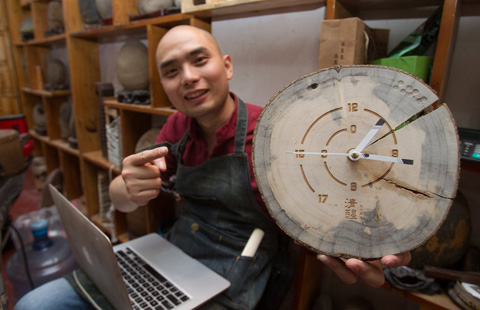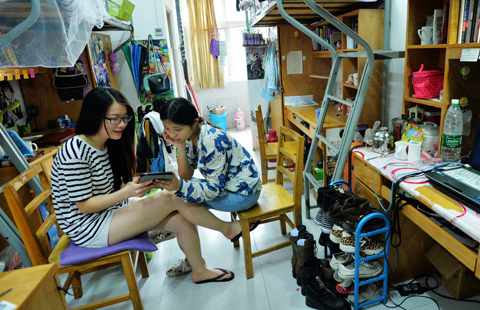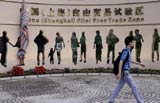'Makers' securing place as China's new economic drivers
(Xinhua) Updated: 2015-05-06 11:09BEIJING - New government promises of favorable policies for tech startups will be further encouragement for the whiz kids working in China's "makerspaces", community workshops where techies gather to collaborate and achieve economies of scale.
While Premier Li Keqiang said on Monday that China will issue more pro-maker policies, this is just the latest government move to encourage innovation and restructure the country's plateauing economy.
One group already benefitting are the micro-businesses who won places in Dream Town, a government-backed makerspace launched last month in Hangzhou, a eastern Chinese city known as a home of high-tech firms, including the Alibaba Group.
Yu Yang, one of many aspirational and tech-savvy members of China's "post-80s generation", has established a 3D printing company in Dream Town.
Yu hopes his technology will help put paid to the stereotype of cheap Chinese goods. His company filled orders worth more than 200,000 yuan ($32,690) in March and he plans to expand.
Dream Town is home to over 80 startups who faced fierce competition for residency, with the workspace being rent-free for the first three years and residents getting access to subsidized loans of up to 1 million yuan.
"The air is filled with energy and vitality. We inspire and cooperate with each other, even sharing clients," said Jing Tian, a Dream Town maker who develops healthcare apps.
Alibaba's Dream Town neighbors are not the only young entrepreneurs aiming high. In garages and cafes, countless young Chinese are setting out to become the next Jack Ma, and the government is glad to lend a hand.
Ma himself, Alibaba's founding father and leading light, was once a maker.
"It took Ma more than a decade to be crowned China's richest man," said Lu Feng, an economics professor at Peking University. Lu believes the process from launching a tech business to growing rich can be much shorter with favorable policies in place.
- Chinese VP meets US-China business council members
- China services PMI continues to grow in April: HSBC
- China regulates private investment through franchising
- China attractive to FDI despite slowing growth: MOC
- P2P platform can become road to modest riches
- Direct flight to link Chengdu with Jeju
- Home sales rebound in China's big cities
- Companies Q1 reports tell changing patterns of economy
















